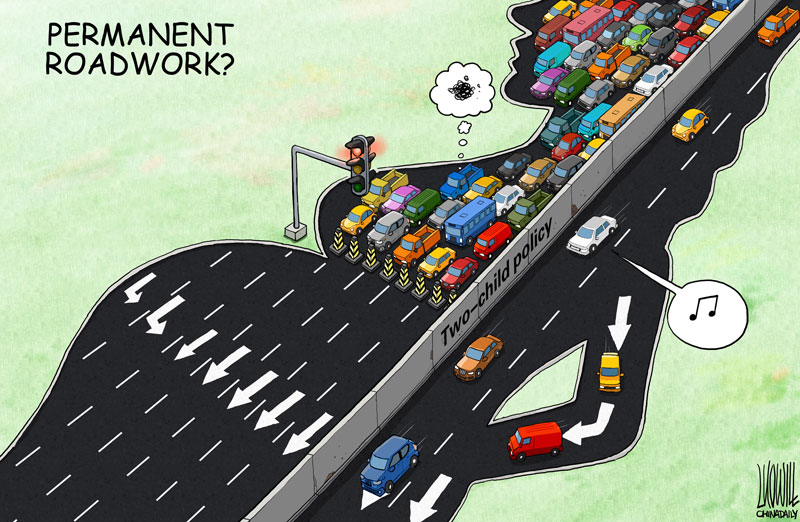A two-child policy for all
- By Mu Guangzong
 0 Comment(s)
0 Comment(s) Print
Print E-mail China Daily, August 11, 2014
E-mail China Daily, August 11, 2014
|
|
|
[By Luo Jie/China Daily] |
Editor's Note: So far 29 municipalities, provinces and autonomous regions have introduced the policy of allowing couples, of whom one is an only child, to have two children, since the Standing Committee of the National People's Congress endorsed the policy in late 2013. Under the new policy about 11 million couples are eligible to have another child. But given China's increasing grey population, it is facing another dilemma: whether to further ease the family planning policy to fully implement a two-child policy.
At present, China implements different family planning policies toward different groups: At first only couples where both parties are an only child could give birth to a second child; now if either the husband or the wife is an only child they can have a second child. But the authorities say that there's no timetable to further ease the population policy to allow all couples to have two children. It's obviously policy discrimination that goes against social fairness.
If China implemented age-specific family planning reform to allow older women to have a second child first, and younger women later, it could possibly alleviate the phenomenon of fertility accumulation and be more acceptable to the public. Late childbirth is not good for both mothers and children. Even if the authorities adjust the population policy, some post-1970s women may not choose to give birth again.
The current differential family planning policies not only create social unfairness, but also sacrifice the country's significant strategic opportunities.
We should be aware that China now has an ultra-low fertility rate due to both population policy and individual desires. During the fifth population census in 2000, the average fertility level of Chinese women of childbearing age had dropped to 1.22. In 2010, the figure dropped further to 1.18. China shows a worryingly persistent ultra-low fertility trend. After implementing its strict family planning policy over the past three decades, there are at least 150 million one-child high-risk families in China, which severely undermines the tradition in China of the "family supporting aged people". Nowadays there's a special disadvantaged group in China: those elderly parents who have lost their only child and become desperate and helpless. China has become a demographic "risk society". Population loss and a shortage of labor have also gradually appeared in China. In 2012, the working-age population between 15 and 59 years old shrank by 3.45 million from the previous year, and in 2013 it further shrank by 2.44 million, which is a result of the long-term low fertility.






